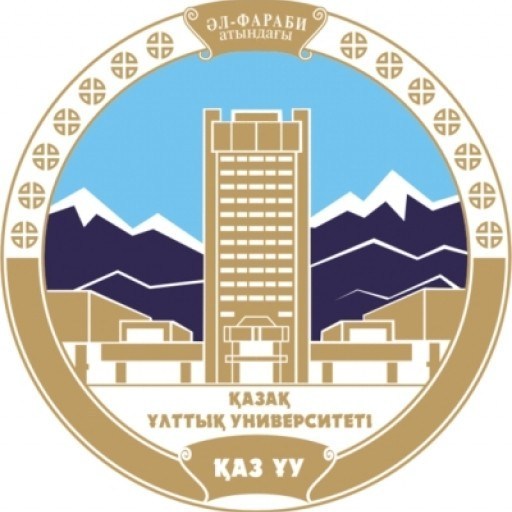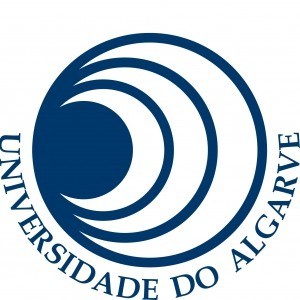Photos of university / #ucl
Program Name: BSc in Citizenship and Civic Engagement
The BSc in Citizenship and Civic Engagement at University College London is a comprehensive undergraduate program designed to explore the multifaceted nature of citizenship, civic responsibilities, and community participation in contemporary society. This innovative curriculum combines theoretical frameworks from political science, sociology, and law with practical engagement in civic activism, community service, and public policy. Students will examine historical and modern perspectives on citizenship, analyze issues related to social justice, human rights, and governance, and develop critical skills necessary for fostering active and informed participation in democratic processes.
Throughout the course, students will engage with a diverse range of topics including the evolution of citizenship rights, the role of civic institutions, globalization's impact on local communities, and the challenges posed by social inequalities. The program offers a balanced mix of lectures, seminars, workshops, and community-based projects, encouraging students to connect academic insights with real-world applications. Emphasis is placed on participatory learning, whereby students are encouraged to undertake volunteer activities, internships, and research projects that contribute to societal betterment.
UCL’s interdisciplinary approach ensures students gain a nuanced understanding of how civic identity and participation influence political stability, social cohesion, and development. They will also critically analyze policies related to migration, minority rights, digital citizenship, and civic education to appreciate the complexities of contemporary civic issues. The program aims to produce graduates equipped with analytical skills, ethical awareness, and practical experience to pursue careers in government, non-profit organizations, international agencies, or further academic research.
The faculty comprises leading scholars and practitioners dedicated to fostering an inclusive learning environment that promotes critical thinking, civic responsibility, and global citizenship. Students will benefit from collaborative projects with local communities, policy analysis exercises, and opportunities for international exchange, which broaden their understanding of citizenship in different cultural and political contexts. This program ultimately prepares students to become active, responsible citizens capable of contributing meaningfully to democratic societies and addressing global challenges with innovative solutions.
You will learn how to really engage students in Citizenship lessons, how to plan for compelling learning in Citizenship, how to support and challenge students to make maximal progress, how to build strong class boundaries and relationships, how to develop and utilise specialist subject knowledge, and how to plan memorable active Citizenship projects.
Students undertake two level 7 (Master’s-level) modules of 30 credits each, totaling 60 credits. These can be carried forward onto full Master’s programmes at the IOE.
The Secondary PGCE consists of three core modules: two Master’s-level (level 7) modules, which are assessed through written assignments, and the Professional Practice module, which is assessed by the observation of practical teaching in placement schools.
Completion of the Professional Practice module and the two level 7 (Master’s level) modules (60 credits) will result in the award of a Postgraduate Certificate of Education (PGCE). Completion of the Professional Practice module and one or two level 6 (undergraduate/Bachelor’s level) modules, will lead to the Professional Graduate Certificate of Education (PgCE).
Core modules
- Subject Studies - Citizenship (30 Master's-level credits)
- Wider Educational Studies - Citizenship (30 Master's-level credits)
- Professional Practice
Optional modules
- There are no optional modules for this programme
Placement
You will spend most of your time (120 days) in schools, working with Citizenship mentors who support you through your two school placements. We are fortunate to have an exceptionally strong choice of schools with whom we work, with many outstanding mentors and strong citizenship departments. The Professional Practice module is assessed through these placements, associated tasks and a portfolio.
Teaching and learning
The Secondary PGCE full-time route is delivered via keynote lectures, subject lectures, seminars, workshops, tutorials and directed study days at the Institute of Education as well as time spent in placement schools or colleges. Assessment is by practical teaching, assignments and portfolio tasks
First degree
Normally a minimum of a lower second-class UK Bachelor’s degree or an overseas qualification of an equivalent standard in a related subject.
A levels
Not required (depending on degree experience) but A levels in one or more of the following are useful: Politics, Law, Sociology, Citizenship Studies, Psychology, History, Geography, Religious Studies, Economics, Business Studies, Anthropology.
GCSEs
English Language and Mathematics at grade C.
School experience
Prospective students must complete a minimum of five days of school experience before they can be enrolled on the Secondary PGCE. This may involve observations, work experience (e.g. as a teaching assistant or cover supervisor), or voluntary work. Applicants must have a minimum of one day's school experience before interview; some subjects will be looking for significantly more than this. Applicants must ensure that their school experience is relevant in helping them to prepare for the Secondary PGCE, during which Student Teachers are placed in a wide range of schools across London and the South East.
DBS and Occupational Health
If you are made an offer you will be required to successfully complete Occupational Health and Disclosure Barring Service (DBS) Enhanced Disclosure checks. The total cost of these checks is £125. These checks are required to ensure you meet the Department for Education’s requirements for physical and mental health to teach, as well as assessing your suitability for access to children and vulnerable adults.
Skill tests
All applicants must successfully complete professional skills tests in literacy and numeracy before they can enrol.
Funding options for the Citizenship program at University College London typically include a range of scholarships, bursaries, and financial aid opportunities designed to support students throughout their studies. UCL offers various merit-based scholarships that are available to both home and international students, which can significantly reduce the financial burden. These scholarships are often awarded based on academic achievement, potential, and financial need. Additionally, students may be eligible for government loan schemes, such as UK Student Loans, which provide affordable financing options for tuition fees and living costs. For international students, UCL also collaborates with external organizations and foundations to offer targeted bursaries and funding opportunities, encouraging diversity and inclusion within the program. It is recommended that prospective students review the specific eligibility criteria and application deadlines for each funding option. Furthermore, students are encouraged to explore part-time work opportunities available on or near campus to supplement their income. UCL’s Financial Support Office provides detailed guidance and assistance in applying for financial aid and managing study-related expenses. Some programs also have dedicated funding for research, projects, or fieldwork related to citizenship and related social sciences. Prospective students should regularly check UCL’s official website for updates on new funding opportunities and application procedures specific to the Citizenship program or related fields. Overall, securing adequate funding involves a combination of scholarships, loans, grants, and personal financial planning, ensuring students can focus on their academic and research endeavors without undue financial stress.
The Citizenship programme at University College London (UCL) offers students an in-depth exploration of concepts related to citizenship, democracy, rights, and social justice. This interdisciplinary course is designed to equip students with a comprehensive understanding of the political, social, and cultural dimensions impacting citizenship worldwide. The programme emphasizes critical thinking, analytical skills, and a global perspective, preparing graduates to engage effectively with ongoing discussions about citizenship in diverse societies. Students examine various topics such as national identity, civic participation, immigration, human rights, and the role of governmental and non-governmental organizations in shaping contemporary civic life. The curriculum integrates insights from political science, sociology, history, and law to foster a well-rounded understanding of the complex issues surrounding citizenship. Throughout the programme, students are encouraged to engage with case studies, participate in debates, and develop their own informed viewpoints on citizenship-related challenges. The course also provides opportunities for practical engagements through community projects, internships, and collaborations with external organizations. Graduates of the programme are well prepared for careers in public policy, international relations, social activism, legal fields, and other sectors where citizenship and civic engagement are central. UCL ensures that the programme maintains high academic standards, offering expert lectures, access to extensive library resources, and networking opportunities with professionals in the field. Overall, the Citizenship programme fosters a critical awareness of the rights and responsibilities of individuals within society and encourages students to become active and responsible citizens in their respective communities.









